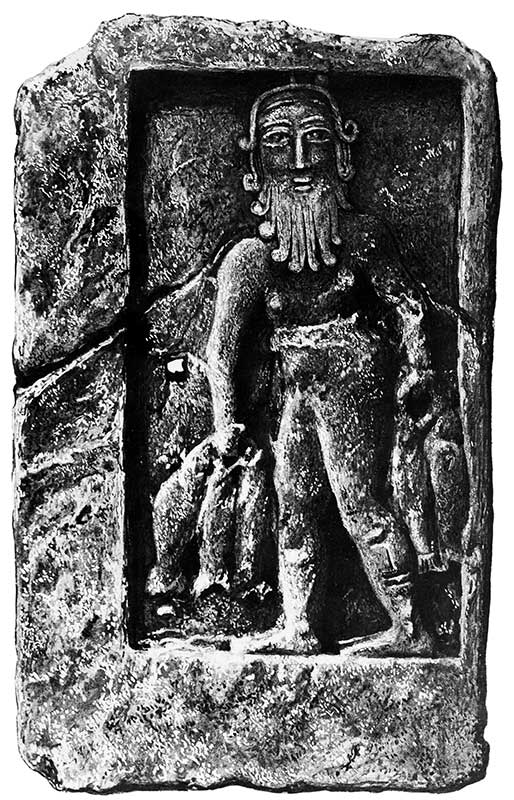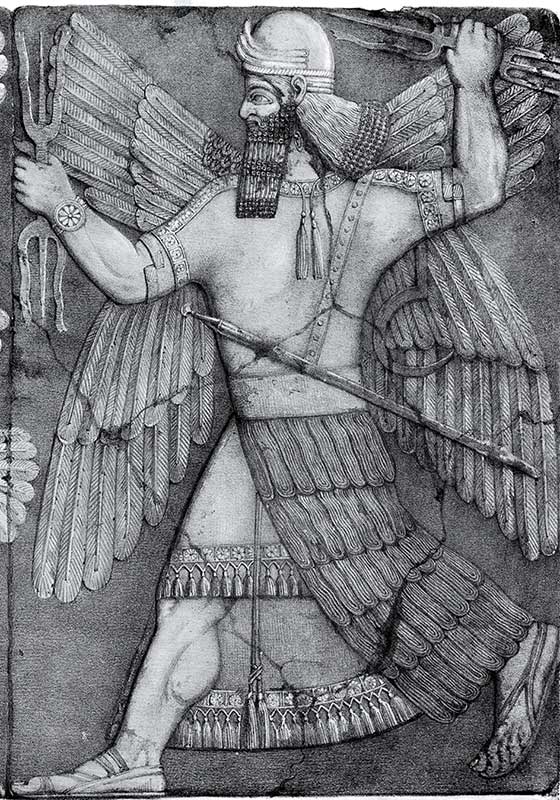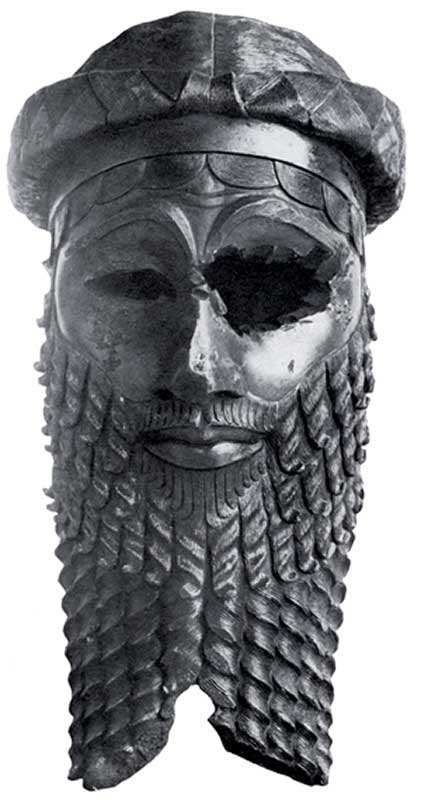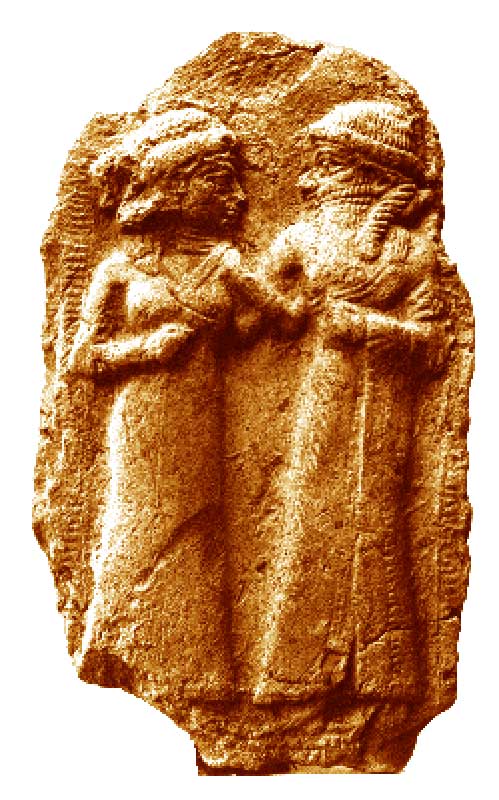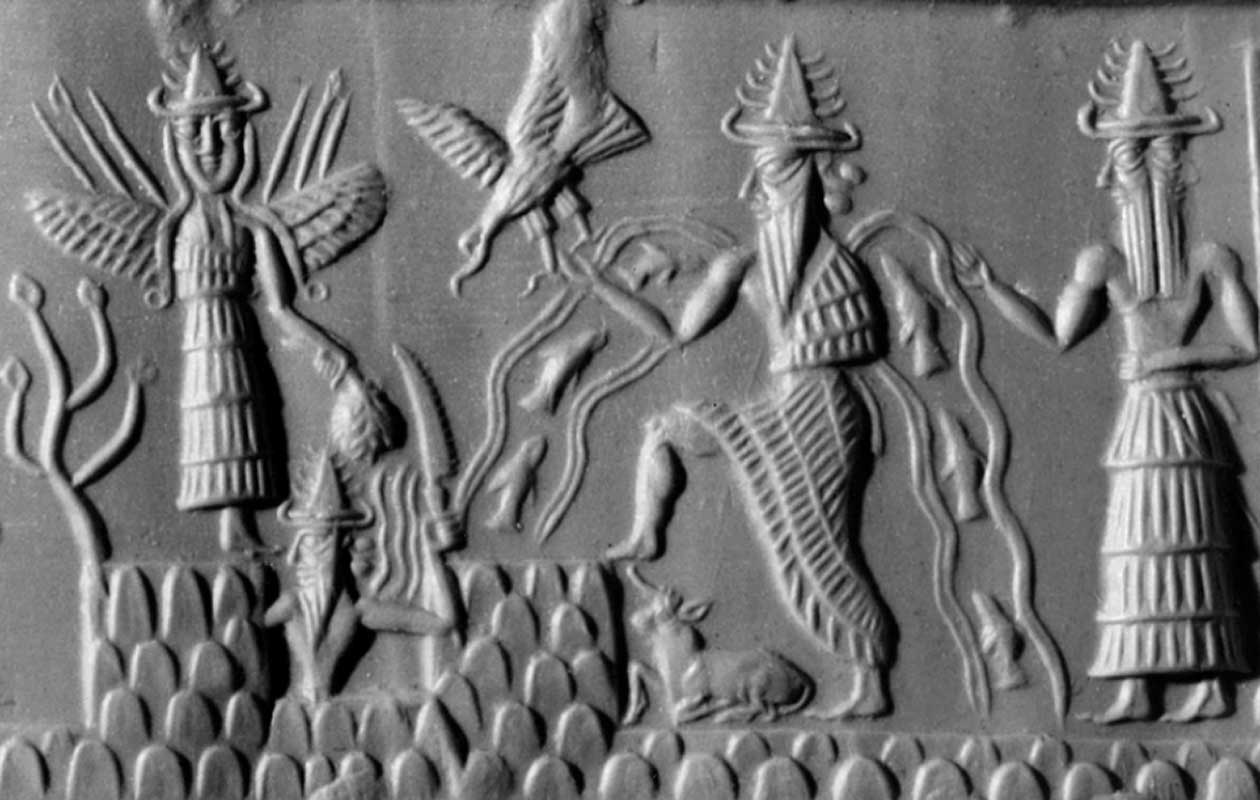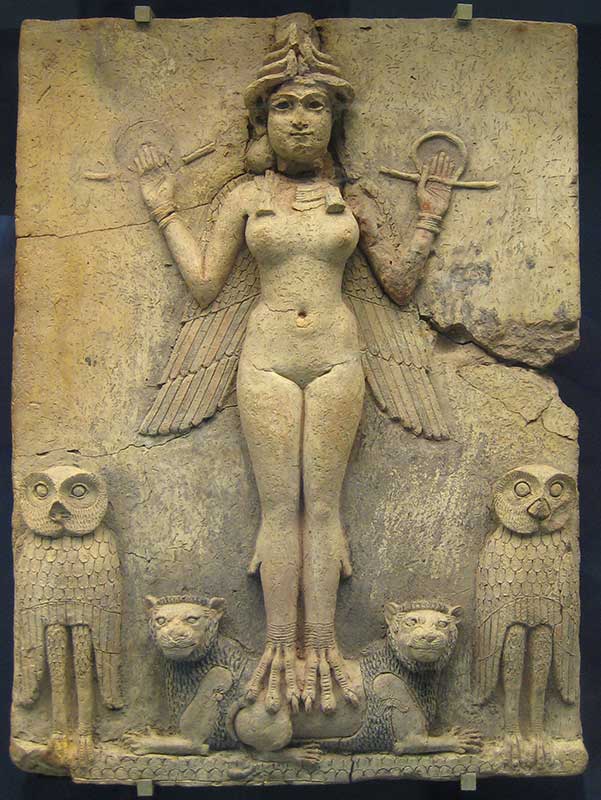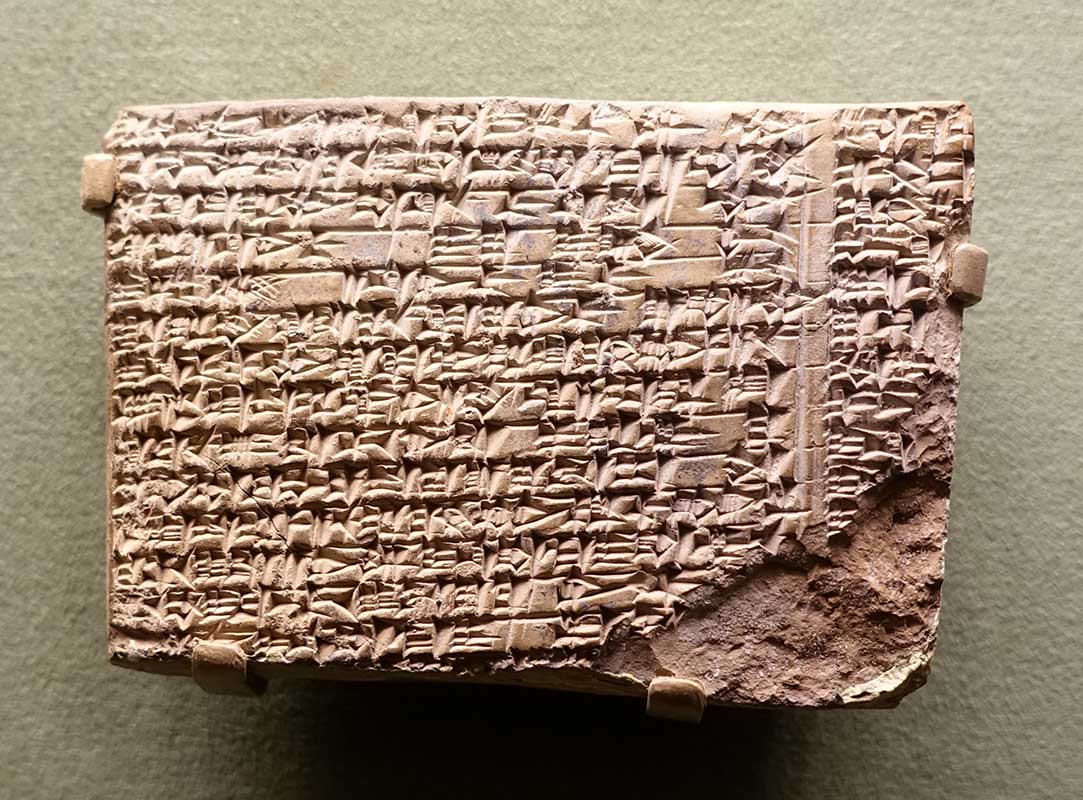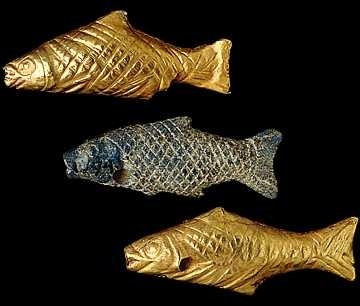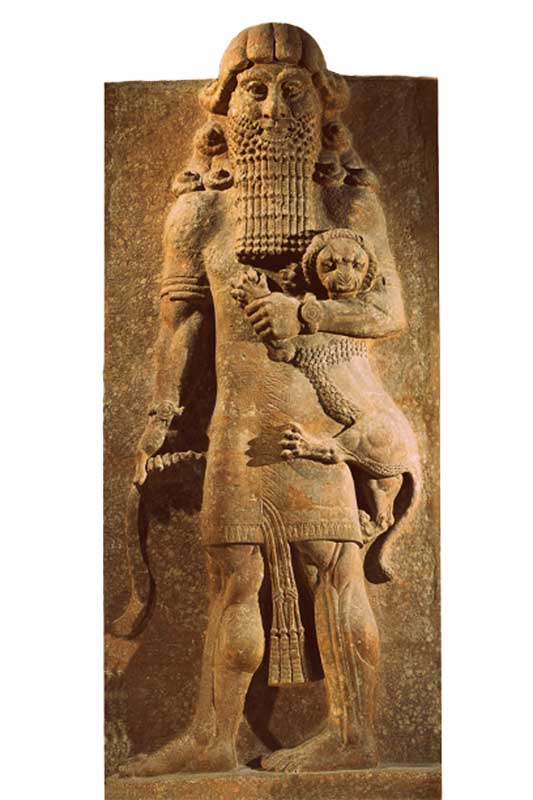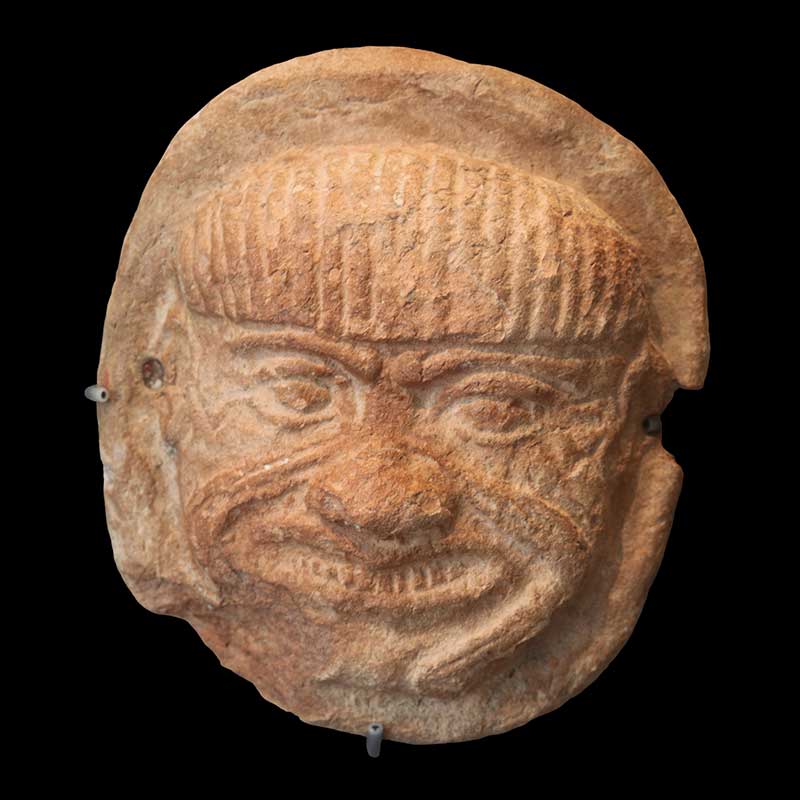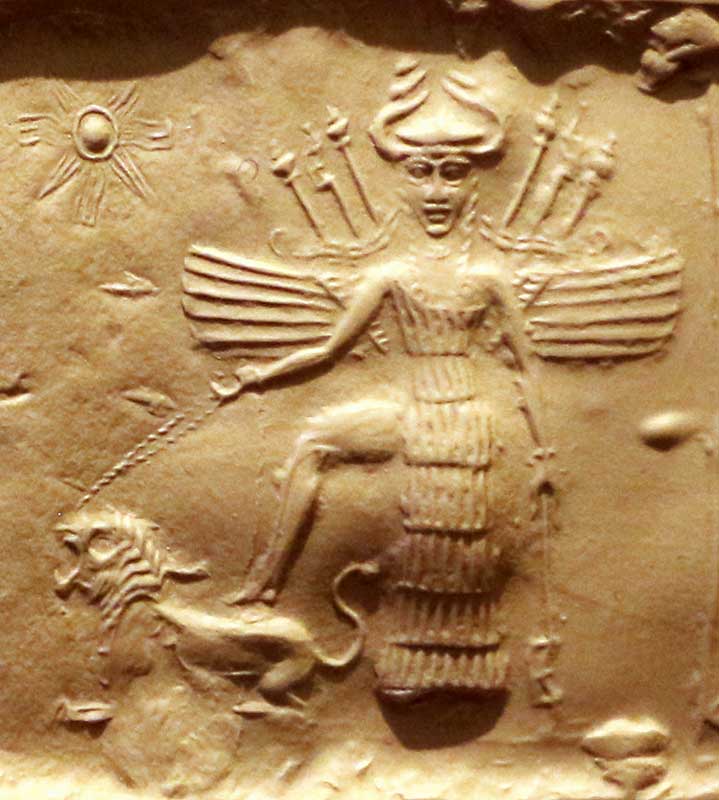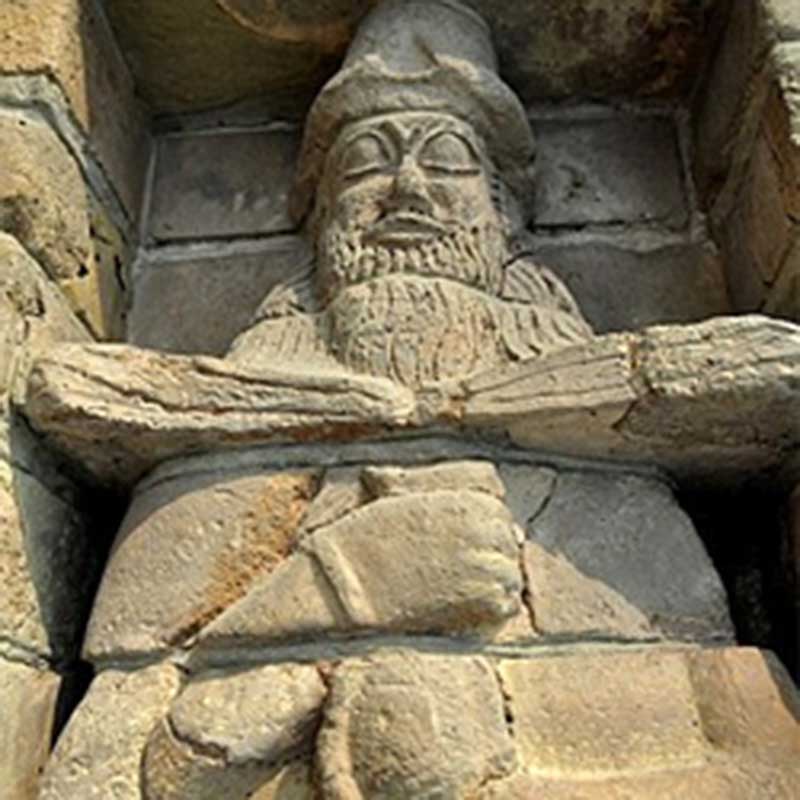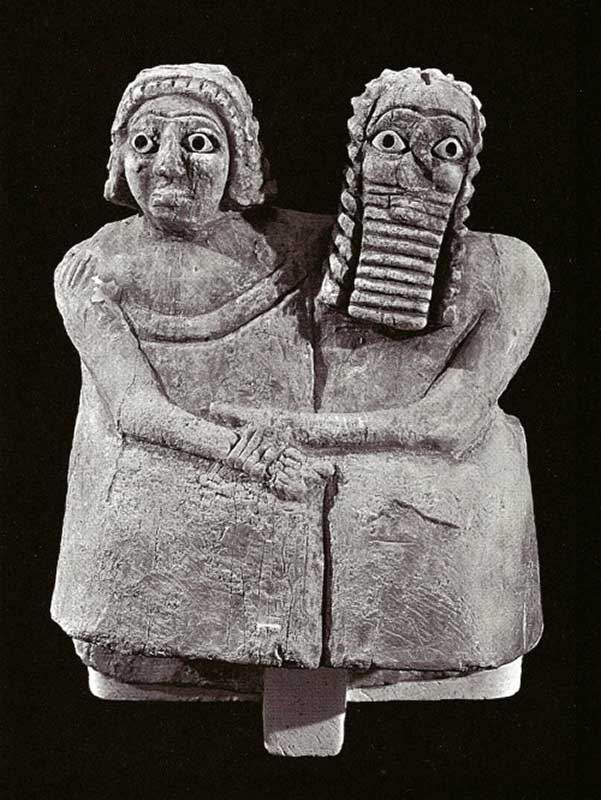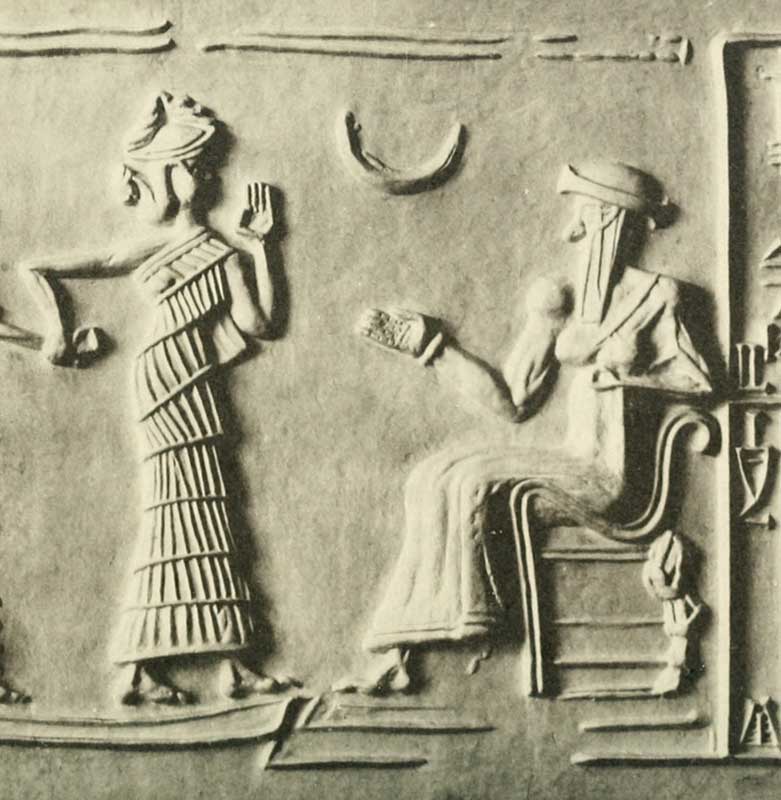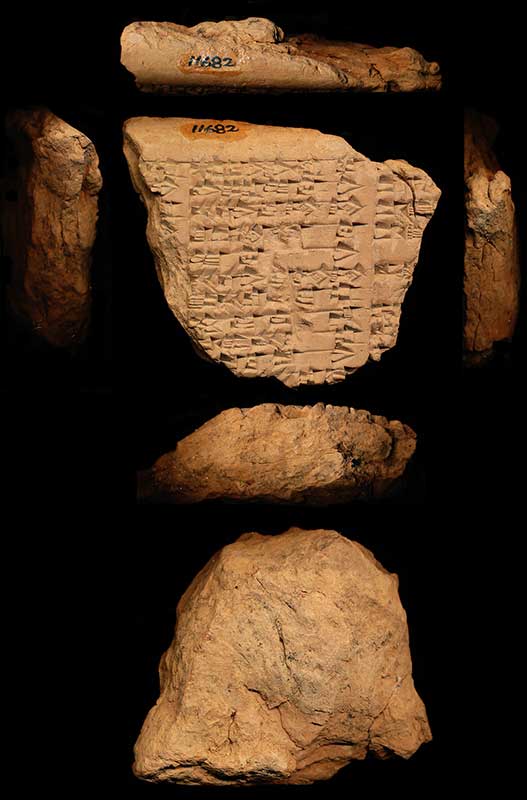Zipang Recording Project
Popularising the literature of ancient Iraq through the art of oral storytelling
The Zipang Recording Project was launched by Eye on Heritage partner the Enheduanna Society in October 2017.
The purpose of the project is to record and make publicly available the Zipang repertoire of re-told Mesopotamian stories. These stories are based closely on academic translations and were developed over twenty years of public performances by the Zipang storytellers: June Peters, Badia Obaid, Fran Hazelton, Fiona Collins.
The Zipang Recording Project was launched with an Outreach Grant generously awarded by the British Institute for the Study of Iraq. The project was then supported by the Sponsor-a-Story scheme and by Purple Patch Records Ltd.
The stories were recorded by Robert Worby , Arij al-Soltan, Jennifer Iles, and Colin Rae. The Zipang Recording Project was produced by Fran Hazelton and by James Ware of Purple Patch Records.

Zipang storytellers June Peters, Fran Hazelton and Badia Obaid.


